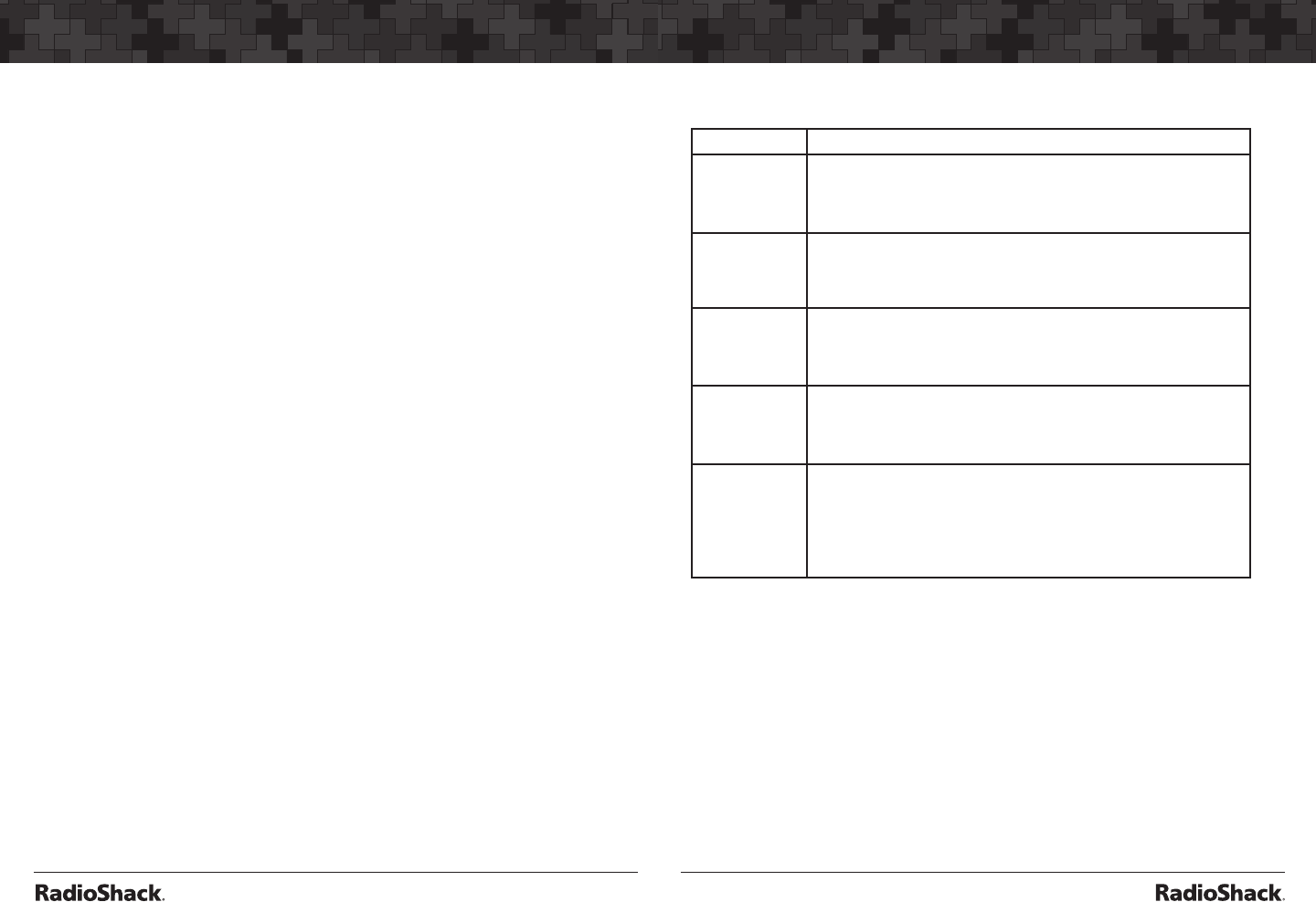
62
Dedicated Searches
63
Dedicated Searches
By default,
TUNE
mode is paused when first activated.
2. Press PAUSE to begin searching from the current frequency.
3. Press p or q to change the search direction.
or Press FrL/O softkey to add a found frequency to the lockout list.
or Press the MODE softkey to change the receive mode (AM, FM,
NFM) from the default for the current frequency range (au).
or Press STOR to create a new CONV object using the found
frequency.
or Use the keypad to enter a new frequency, and press ENT to
make that the
TUNE
frequency.
Notes:
• Using FUNC TUNE from any other mode will load the last
active frequency from the other mode into
TUNE
. For example,
pressing FUNC TUNE while parked on a trunked radio TGRP will
load the control channel frequency into the
TUNE
mode if the
control channel frequency is the last frequency that the scanner
checked while scanning.
• Dedicated
TUNE
mode will always check for the presence of
encoded squelch and digital modulation each time it finds an
active frequency. If a valid encoded squelch code is found, it
will be shown on the display, and stored automatically when you
press STOR to create a new CONV object.
• Dedicated
TUNE
mode also displays information about trunking
control channels and trunked voice channels it finds while tuning
through the RF spectrum.
The following information is displayed for each trunking mode:
Trunked Mode Analysis Display
Motorola 3600
baud control
channel
qq% SID:ssss Stt
qq = decoding quality of the control channel data, SID = System
ID, and
S = Site Number
P25 9600 BPS
control channel
qq% Nnnn W:wwwww
Sys:sss Rrr Stt
qq = decoding quality of the control channel data, N = NAC, W =
WACN, SYS = System ID, R = RFSS, and S = Site Number
EDACS control
channel
qq% S:ss h/H s/S a/A
qq = decoding quality of the control channel data, S = Site ID,
h/H = not home site/is home site, s/S = not SCAT site/is SCAT
site, a/A = not Aux CC/is Aux CC
LTR home
repeater
HR:hh A–HH–GGG
HR = the home repeater number of the tuned frequency, A-
HH-GGG = the Area, Home Repeater and Group ID of the LTR
talkgroup
Motorola
analog voice
channel
VC: lsTGID–nnnnn
lsTGID = the decoded talkgroup ID data from the lowspeed data
stream
Note that the analog lowspeed data protocol does not provide
error correction, and some false “VC: lsTGID” readings should be
expected.
Tune LED
Tune LED can provide visual indication of signal strength using the
tri-color LED.
To activate the Tune LED:
1. Press PROG for Program Mode.
2. Press GLOB softkey.
3. Press q to select Tune LED:.
4. Press t or u to select Tune LED on or off.
5. Press the SAVE softkey to save your changes to the radio’s
configuration memory.


















